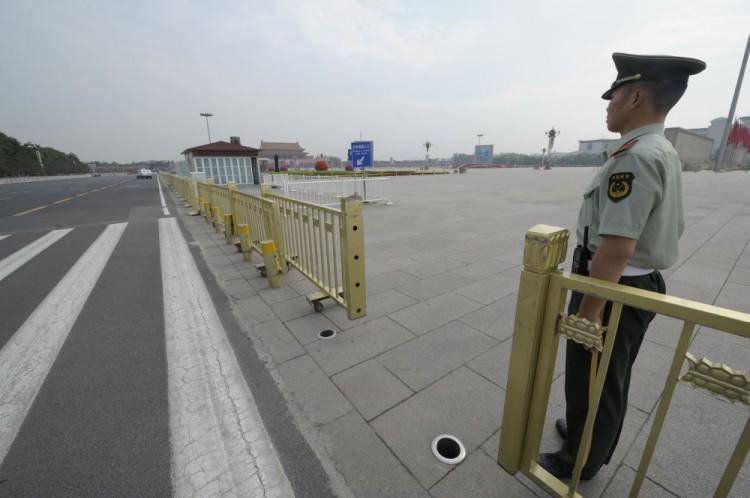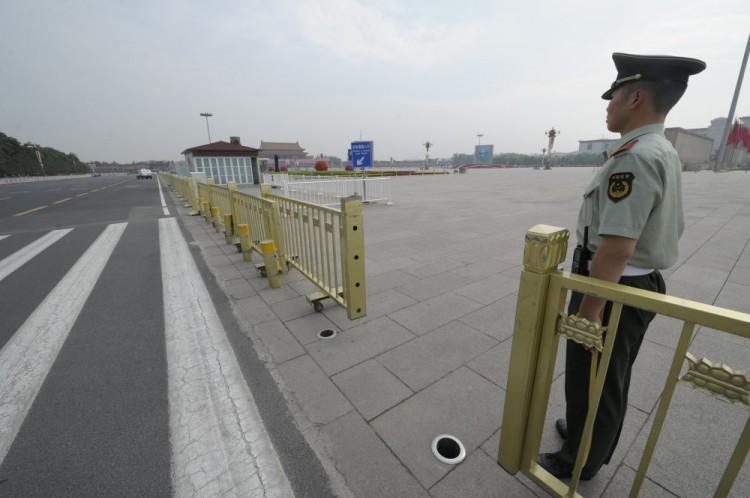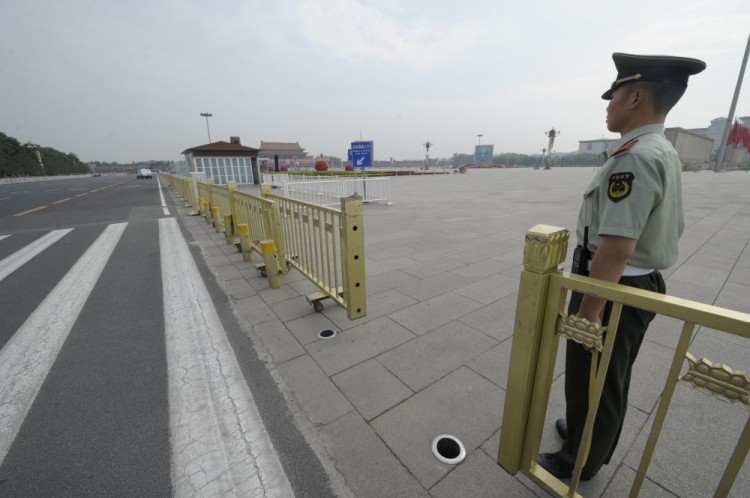Since the mysterious death of Chinese democracy activist Li Wangyang on Wednesday, Li’s sister and brother-in-law have been subjected to close police surveillance, while democracy activists who have visited Li’s family are at risk of severe persecution.
During the 1989 democracy movement, Li, a dissident and activist, was jailed after he tried to establish an independent labor union in his hometown of Shaoyang City, Hunan Province. On June 6, he was found dead in the hospital where he was being treated for diabetes and heart disease. Although he appears to have committed suicide, friends and relatives are suspicious over the odd circumstances of his death.
Hunan democracy activist Zhou Zhirong told The Epoch Times that he spoke to Li’s sister, Li Wangling on the morning of June 7. Li Wangling told Zhou, that her friends and fellow activists were visiting her and her husband at their hotel when local police forced them to leave. Li Wangling and her husband were then prevented from leaving the hotel while being held under police supervision.
Police rejected Li Wangling’s repeated requests to see Li Wangyang’s body. She asked Zhou to tell the international community that police are preventing her from seeing her brother’s body, with the hope that international support will pressure the Chinese authorities to release her. “The Committee to Investigate the Truth Regarding Li Wangyang’s Suicide,” founded by Zhou on Wednesday, has drawn over 30 people to participate so far.
According to Li Wangling, Shaoyang police have already received orders from their superiors to severely persecute Hunan democracy activists and petitioners who appeal to the local government.
Hong Kong journalist Bei Feng, Beijing economist Xia Yeliang, and U.S.-based scholar Wu Renhua have initiated an urgent appeal calling for a thorough investigation into the cause of Li’s death. Their appeal, which is available online for the public to sign, asks for “an authorized forensic science institution outside Shaoyang municipality” to investigate his death and make the findings public, and calls upon the United Nations and the international community to “pressure the Chinese government, to ensure that Mr. Li’s death will be dealt with fairly, judiciously, and transparently.”
Chinese netizens have also expressed their anger and shock at Li’s death. Twitter user yancaiwm said: “The Shaoyang national brigade is currently exerting immense pressure on Li Wangyang’s sister and brother-in-law. Li Wangyang’s online mourning site has been deleted … how can a country be ruled by people who have committed such terrible sins?”
Twitter user Sfchoi8964 said: “We are holding a night vigil outside the PRC liaison office to remember Li Wangyang. [We must] investigate the cause of your death and bring the murderer to justice. I hope your name will one day be cleared. May you rest in peace.”
Twitter user hardysxtreme, the creator of a blog that speaks out against single party rule in Hong Kong, claims to have found the person responsible for Li’s death. He tweeted the following message, noting that he is passing down the information from a confirmed source: “(Confirmed) Wanted for first-degree murder: police chief at the Shaoyang City public security bureau, Li Xiaokui, suspected for killing ‘June 4th’ hero Li Wangyang,” along with his contact information.
Chinese netizens suspect that Li Xiaokui was the person in charge of monitoring Li Wangyang at the hospital and took away Li’s body.
With reporting by Gu Qing'er and Ariel Tian.
Click www.ept.ms/ccp-crisis to read about the most recent developments in the ongoing crisis within the Chinese communist regime. In this special topic, we provide readers with the necessary context to understand the situation. Get the RSS feed. Get the new interactive Timeline of Events. Who are the Major Players? ![]()
The Epoch Times publishes in 35 countries and in 19 languages. Subscribe to our e-newsletter.







